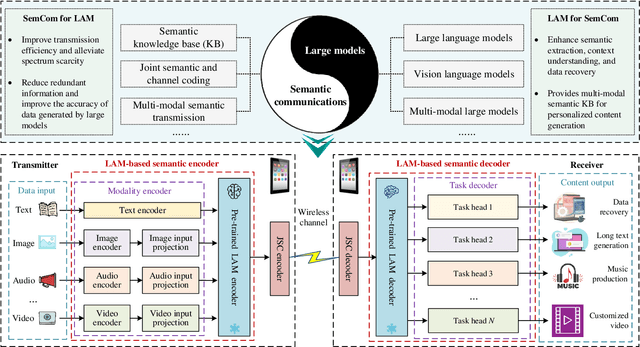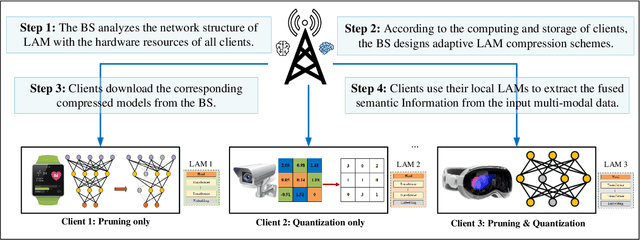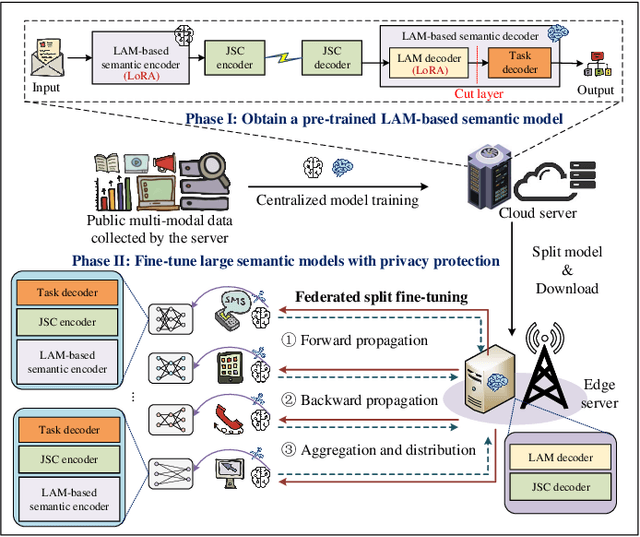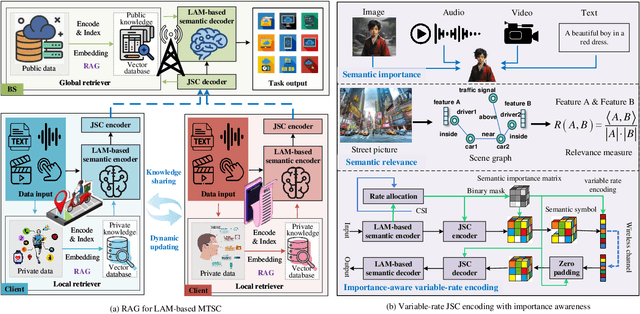Multi-Task Semantic Communications via Large Models
Paper and Code
Mar 28, 2025



Artificial intelligence (AI) promises to revolutionize the design, optimization and management of next-generation communication systems. In this article, we explore the integration of large AI models (LAMs) into semantic communications (SemCom) by leveraging their multi-modal data processing and generation capabilities. Although LAMs bring unprecedented abilities to extract semantics from raw data, this integration entails multifaceted challenges including high resource demands, model complexity, and the need for adaptability across diverse modalities and tasks. To overcome these challenges, we propose a LAM-based multi-task SemCom (MTSC) architecture, which includes an adaptive model compression strategy and a federated split fine-tuning approach to facilitate the efficient deployment of LAM-based semantic models in resource-limited networks. Furthermore, a retrieval-augmented generation scheme is implemented to synthesize the most recent local and global knowledge bases to enhance the accuracy of semantic extraction and content generation, thereby improving the inference performance. Finally, simulation results demonstrate the efficacy of the proposed LAM-based MTSC architecture, highlighting the performance enhancements across various downstream tasks under varying channel conditions.
 Add to Chrome
Add to Chrome Add to Firefox
Add to Firefox Add to Edge
Add to Edge